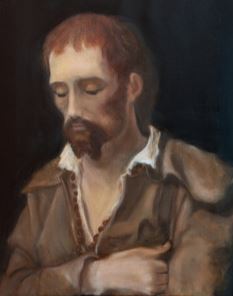Human Connection in the Time of COVID-19
Over the past few months, uncertainty and fear have hovered constantly over our daily lives, causing anxiety about both our physical and financial futures. I find myself daydreaming about the normal, everyday things I had taken for granted -- walking through Brooklyn Heights to Remsen Street, popping in my co-workers’ offices to chat about what they had made for dinner the previous evening, taking my dog on a walk through Prospect Park on nice evenings after work…the list goes on and on. The parts of my past life that I yearn for the most are the simple, daily interactions with family, friends, and strangers – what I often thought of as mundane I now consider precious. Whether it was getting the highlights of my neighbor’s kids’ soccer game, discussing the latest political debate with the cashier at the wine store, or catching up with my former college roommate over dinner, I now realize how critical and crucial human connection really is.
It is all too easy to feel the sharp pangs of isolation in our current reality – we must stay inside to flatten the curve, and when we must go out, we do so in a protective bubble by donning masks and gloves and moving as efficiently as possible. Last week, as I arrived at the grocery store to re-stock the kitchen, I groaned upon seeing a line outside the door and begrudgingly took my place, six feet away, at the back of the line. The gentleman ahead of me immediately turned around and greeted me by saying, “Good morning! What a wonderful weekend! I just became a grandfather for the first time last night!” Though he was wearing his mask, I could see that he was smiling by how his eyes were radiating with happiness. As I smiled back and congratulated him, I realized that his joy was infectious and rediscovered the power of human connection.
Now, more than ever, we must make a conscious effort to spread the power of human connection – whether it is shared joy or shared sorrow, it is the very essence of being human. We all are struggling to find glimmers of normal life as the world battles COVID-19. Personally, my mind is able to escape my fears and anxieties most often when I am having those precious “mundane” interactions over Zoom, FaceTime, phone calls, and emails. While it is not a perfect substitution for the joy of walking to Remsen Street and seeing my friends and colleagues in person, it can come pretty darn close.
Eleanor Nordholm
Major Gifts Officer















